Understanding the Value of Kitchen Extensions
Kitchen extensions can significantly augment the value of your property while offering a multitude of practical advantages.
The value addition isn't solely monetary—though an extension can indeed contribute a considerable amount to your property resale value—it's also about maximising your living space and enhancing the overall utility of your home.
Practical Benefits:
- Ample Space: With a kitchen extension, there is more room to accommodate modern kitchen appliances, larger worktop areas, and a dining space, fostering an open-plan living style.
- Improved Layout: An extension presents an opportunity to revise the layout of your kitchen, which could, in turn, optimise the usage of available space while enhancing the workflow.
- Natural Light: By incorporating design elements like bifold or sliding doors, or skylights, you can flood your kitchen with natural light, giving it a brighter, more open feel.
Value Boosting
Property experts suggest that a well-executed kitchen extension can increase a property's value by up to 15%. However, this is dependent on several variables, such as:
- The quality of construction: High-quality materials and workmanship can add to the value of your extension and, by extension, your property.
- Functional and aesthetic appeal: A balance between an attractive design and practical functionality is crucial.
- Supplementary features: Including features such as underfloor heating, energy-efficient appliances or a pantry might result in a higher appraisal value.
Considering these factors, a well-planned and executed kitchen extension can be a judicious investment, ensuring your property stands out when it's time to sell.
But remember to focus as much on the needs and lifestyle of prospective buyers as you do on your own, as it is they who will ultimately determine the added worth of your kitchen extension.
Focus as much on the needs and lifestyle of prospective buyers as you do on your own.
Finally, it's worth noting that, while an extension can add significant value to your property, it should always be undertaken with a clear understanding of your budget and structural possibilities of your property to avoid unnecessary expenditure or physical constraints.
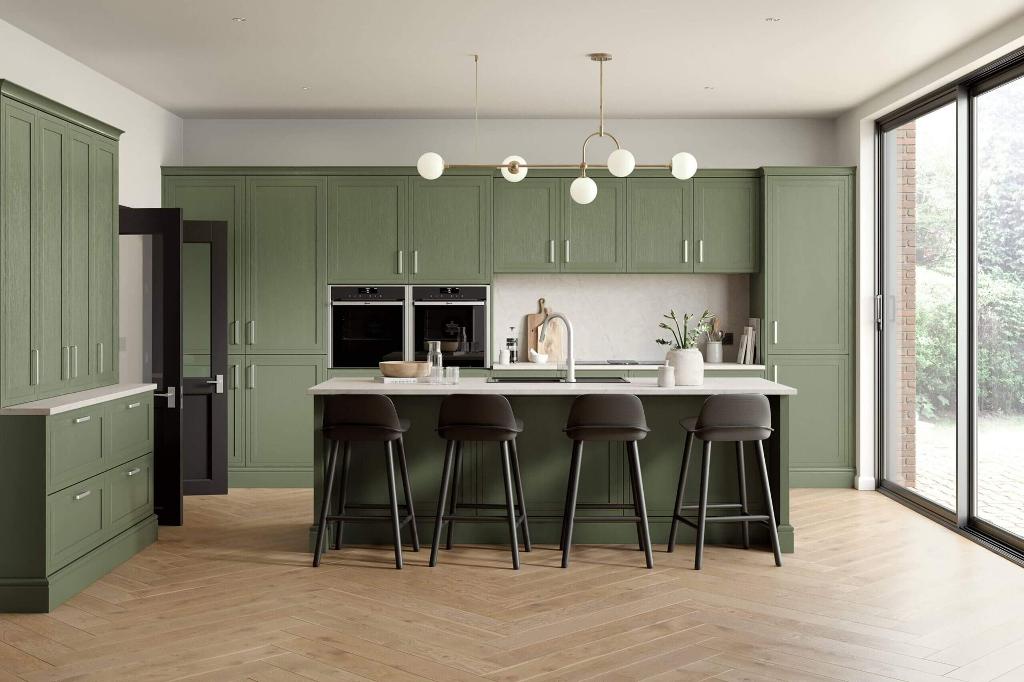
Essential Steps to Planning Your Kitchen Extension
Embarking on a kitchen extension involves a significant amount of planning. As you move forward with the project, make sure to tick off the essential steps below.
- Establish Your Needs and Wants: Fully understanding what you want from your kitchen extension is crucial. Do you require more workspace, increased storage, or simply space for dining? By establishing a list of 'must-haves' and 'nice-to-haves', you will guide the design process effectively and ensure the final result meets your needs.
- Collate Design Inspiration: Research kitchen designs that appeal to you. Use websites, magazines, and social media to gather ideas. This collection of inspirations will help you (or your architect) design your kitchen extension with the look you want.
- Draw Up a Budget: The scale and detail of your kitchen extension largely depend on your budget. Understand that the materials, tradespeople and completion time are largely influenced by the financial resources at your disposal.
- Hire the Right Professionals: Unless you're hugely experienced in construction, you'll likely need an architect and a construction team to bring your extension dream to life. Research, discuss plans, and get quotes before enlisting professional help.
- Secure Necessary Permissions: Depending on the scale of the extension, you may need certain permissions from your local authorities. Neglect to secure these and you risk halting construction and facing fines.
- Consider the Timeline: Lastly, keep in mind that your kitchen extension will involve a significant time commitment. Depending on the scope, projects can take anything from a few weeks to several months. Plan accordingly.
Bear in mind, diligent planning will not only save you time and money but also help to ensure that the finished product adds value to your home and enhances your lifestyle. Be methodical and seek professional guidance when needed. As the old adage goes, “Measure twice, cut once”.
Key Factors to Consider for a Successful Kitchen Extension
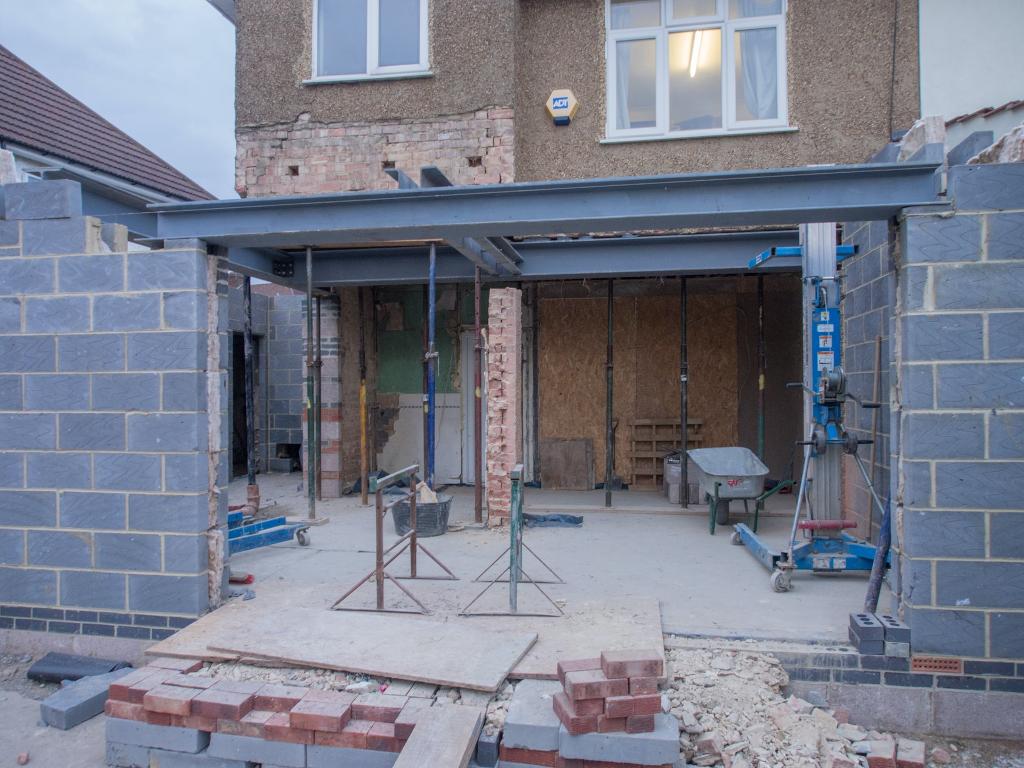
Embarking on a kitchen extension project requires careful thought and planning. To ensure your extension adds the desired value to your property, consider the following factors:
- Understand Building Regulations: Kitchen extensions must comply with local building regulations and codes. Be sure to check with your local council for any restrictions before you begin.
- Plan for Storage: An effective kitchen extension should increase your storage space, not decrease it. Consider integrating storage solutions into your design to maximise utility.
- Consider the Light: Natural light plays a significant role in enhancing the ambiance of the space. Position your extension to take advantage of natural light, and plan for supplementary artificial lighting as necessary.
- Think About Workflow: Kitchens function best when they follow a logical layout. Think about the 'golden triangle' of sink, oven, and refrigerator, ensuring an efficient workflow within the kitchen.
The above points are crucial, but now let's dwell a bit more on the last one—planning a practical layout for your kitchen. Here's what you should keep in mind:
Designing for Practicality and Efficiency
A kitchen extension is more than just adding square footage; it's about enhancing functionality and convenience. Pay attention to these specifics:
- Space between Counters: Ensure there's a comfortable gap between the counters. Too much distance might lead to unnecessary steps, yet too little could make the space congested and hinder movement.
- Choice of Appliances: Decide on your appliances before you finalise the fitted furniture. This helps you design the furniture around the appliances, rather than trying to fit the appliances into pre-designed spaces.
- Utility Zone: Try to group related activities together. For instance, place your dishwasher next to the sink, and locate your oven near your prep area.
- Lighting: Incorporating task lighting where you'll be chopping, cooking and reading recipes is a sensible idea. Think about under-cabinet lights, spotlights over the stove, and pendant lights over the dining area.
Remember that a well-designed extension complements your home and caters to your lifestyle.
By taking the time to consider your needs, plan your space and respect building regulations, your kitchen extension project will significantly enhance not only your home's functionality but also its value. Include all these into your plan, and your efforts will surely pay off.
Choosing the Right Design for Your Kitchen Extension
If you're thinking about a kitchen extension, picking the correct design is crucial.
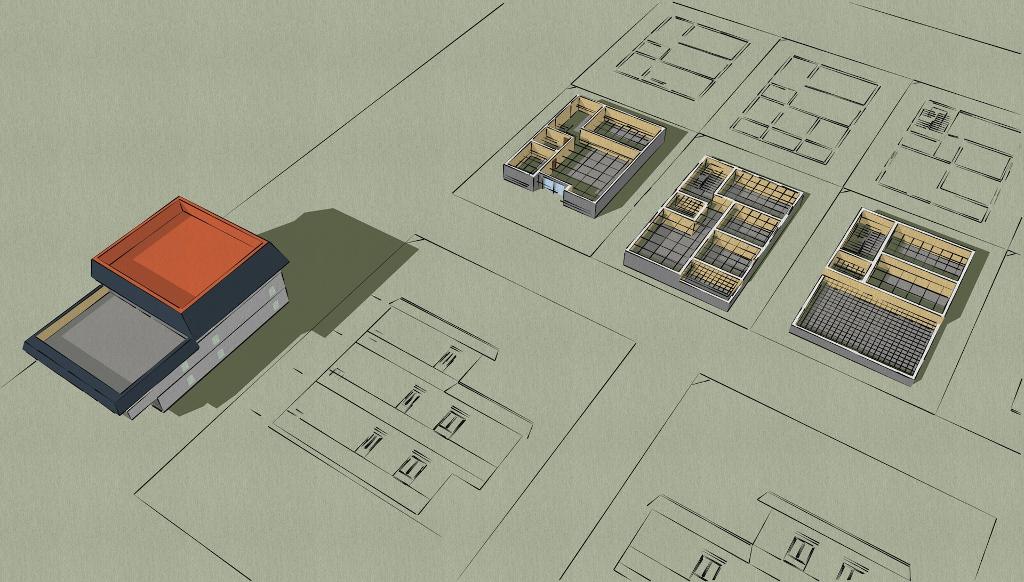
Not only does it need to function well as a kitchen, it should also enhance the aesthetics of your home, add value to your property, and meet your personal preferences. To make an informed decision, there are a few key factors you should consider:
- Space Available: Your design should efficiently utilise the available space without making the area cramped. The fundamental rules of ergonomics must govern the allocation of space in your kitchen.
- Layout: The layout should suit your cooking needs and lifestyle. For example, the "work triangle" concept, where the cooker, fridge and sink form a triangle, is a commonly favoured layout as it maximises efficiency.
- Lighting: Proper lighting is essential to create a comfortable and functional atmosphere. This can be achieved naturally through windows and skylights, or artificially using strategically placed lights.
- Style: The style of your extension should sync with the design of your existing property. Whether you prefer a modern minimalist design or a traditional farmhouse style, ensure it complements the overall décor of your home.
Choosing Materials and Appliances
Selection of materials and appliances plays a paramount role in defining the final look, efficiency, and durability of your kitchen extension.
Always prioritise quality over cost, as investing in high-grade materials and appliances ensures longevity and adds value to your property. Here are a few guidelines:
- For worktops, robust materials like granite, quartz, and high-end laminates are ideal as they promise durability and are easy to maintain.
- For appliances, choose energy-efficient ones with high functionality to cut down on electricity bills and contribute to a greener environment.
- Choose cabinet materials that are resistant to water, wear, and tear. Solid wood, plywood and MFC are solid choices given their robust nature.
Remember, every component of your kitchen extension should offer a balance between aesthetics, functionality, and economy.
Working with Professionals
Juxtaposing your preferences with professional expertise is always a wise idea. Architects, interior designers or kitchen specialists can bring invaluable insight when selecting the right design for your kitchen extension.
Their knowledge can help you realise your vision, while adhering to building regulations and optimising your budget.
Exploring and comparing different materials, designs, and layouts is a rigorous task, but the results can make a significant impact on not just your cooking experience but also your property's value.
At the end, your kitchen extension should function as an efficient workspace while resonating with your style and comfort.
Smart Budgeting for Your Kitchen Extension
Smart budgeting for your kitchen extension doesn't simply mean setting aside a certain sum of money. It's a nuanced process that involves foresight, planning, and deep consideration of your needs and wants.
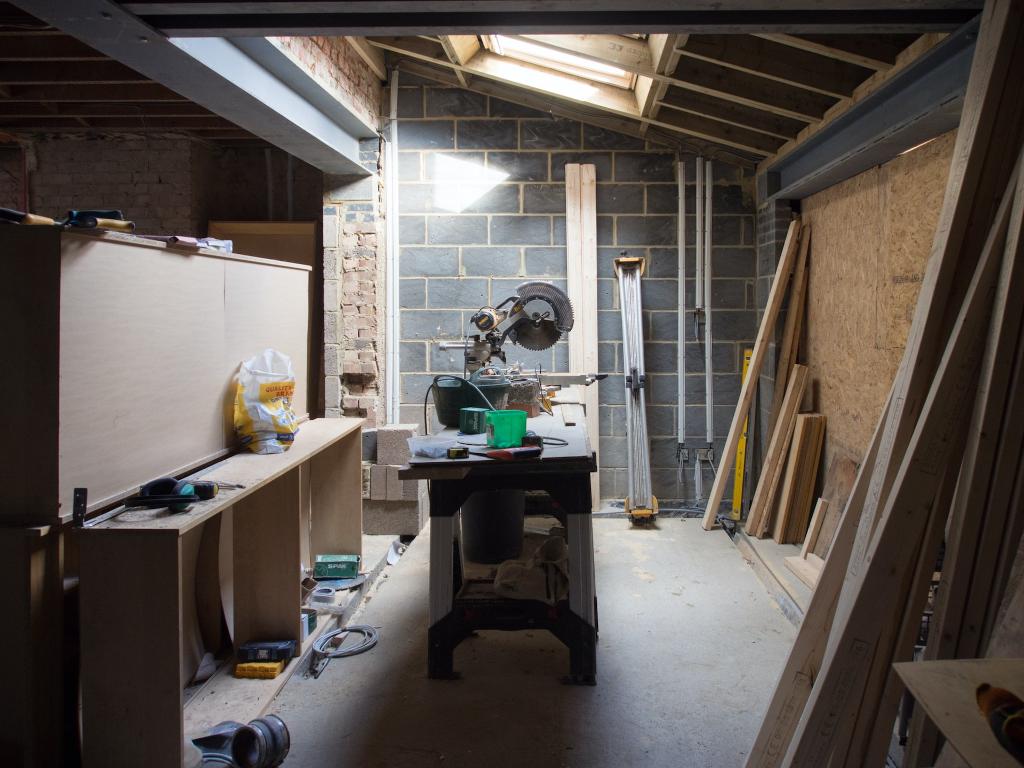
Here, we'll highlight aspects crucial to budgeting your kitchen extension effectively.
1. Initial Budgeting Phase: Building an initial budget involves collecting estimates for various costs. This includes the cost of materials, appliances, and labour. Bear in mind, the deeper the detailed level, the better your budget will be.
- Material Expenses: This is the cost of all the materials required for the extension, including flooring, paint, tiles, kitchen furniture and more.
- Labour Expenses: This involves costs for designers, builders and, if needed, electricians or plumbers.
- Appliance Expenses: The budget should also factor in the cost of new appliances or replacing old ones.
2. Factor in Unforeseen Costs: A smart budget always allows for unforeseen costs. No project goes exactly as per plan; unexpected expenses can arise, and it's essential to be prepared for this. Experts suggest setting aside 10-20% of your budget to cover such instances.
3. Cost versus Value: Understanding the relationship between cost and value is fundamental when budgeting. Consider the longevity and durability of material choices versus their upfront cost. In some cases, spending a bit more initially on high-quality materials can save substantially on maintenance costs down the line.
4. Review and Revise the Budget: Regularly check your budget against actual expenses. If you're going over, identify the reasons and make necessary adjustments. This could mean modifying some of your plans or finding new ways to save.
Lastly, ensure transparency about your budget with your contracted professionals, as they can provide guidance and suggest cost-effective strategies.
A well-planned budget is key to ensuring your kitchen extension adds worth to your property while avoiding unnecessary financial strain.
The Impact of Kitchen Extensions on Property Value
Adding a kitchen extension undoubtedly yields manifold benefits to any property, and a significant aspect among these is the notable potential uplift in the property's value.
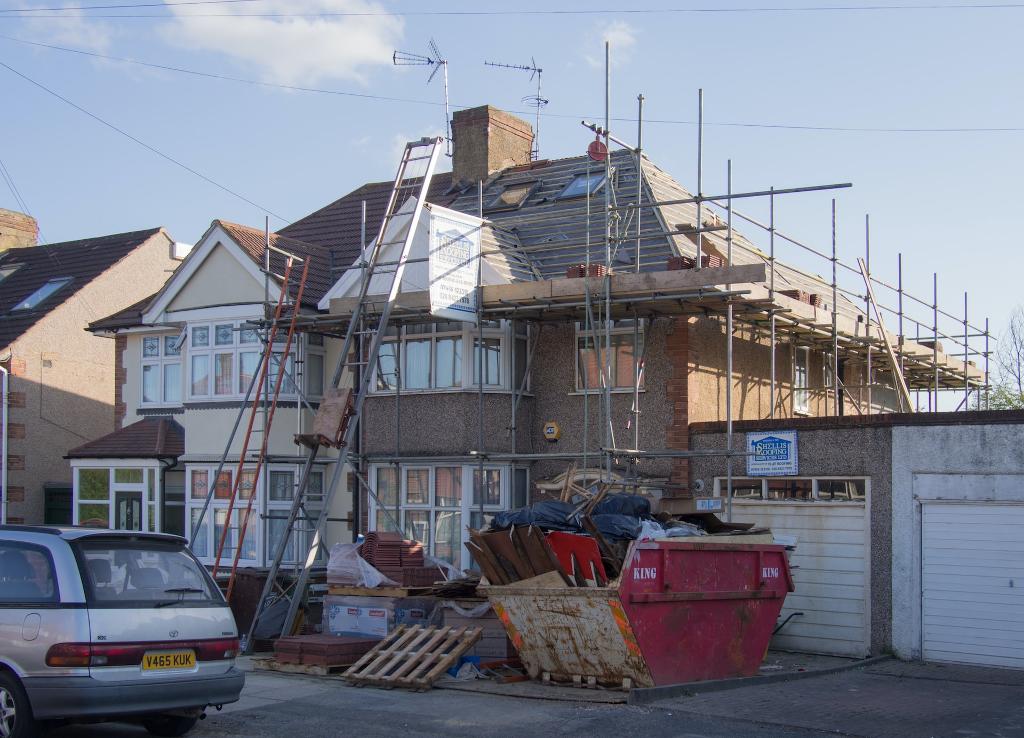
Often, homeowners who invest in these projects retrieve from 70-80% of the costs when the property is sold. However, the precise impact of the extension hinges on various factors, which we will duly explore.
Geographical Location: For starters, the property's location plays a considerable role in determining the potential added value. Prime areas command higher property prices, and consequently, the uplift from a kitchen extension is typically more significant.
Quality of the Extension: The quality of your kitchen extension is also central in this equation. A well-crafted kitchen extension, equipped with high-quality finishings and fittings, will carry more appeal than a cheaper alternative and ultimately, fetch higher returns.
Space and Usability: The space created by the extension and the enhancement to the property’s existing layout are pivotal. An extension that offers additional workspace, dining area or improves the flow between rooms will be an attractive proposition to potential buyers.
Design Consistency: Maintaining coherence with the property’s existing design style is also paramount. An extension that looks out of place or doesn’t integrate well with rest of the house may deter prospective buyers, thus affecting the property value negatively.
The impact of a kitchen extension on property value isn’t easy to measure in exact numbers as it depends on a combination of factors, and it can also vary considerably from one property to another.
However, when planned correctly, it can undoubtedly add remarkable value to your property both in terms of comfort, functionality, and will also enhance your property's marketability.
In essence, a kitchen extension is an invaluable step towards enriching your property's potential.
Benefits and Risks of DIY Kitchen Extensions
Embarking on a DIY kitchen extension can seem like an attractive option - it holds the promise of saving money, gaining new skills and a sense of personal accomplishment.
However, before you pick up a hammer, take a moment to understand the benefits and risks associated with DIY kitchen extensions.
Benefits of DIY Kitchen Extensions
- Cost-Efficiency: The most apparent advantage of a DIY kitchen extension is cost-saving. By handling some of the labour yourself, you can save on professional fees.
- Personal Satisfaction: There is a sense of pride that comes with completing a home project. Completing a kitchen extension by yourself can be a rewarding achievement.
- Control: Managing the project gives you complete control over every aspect of the kitchen extension from design choices to the timeline.
Risks of DIY Kitchen Extensions
- Quality: If you are not an experienced builder or contractor, the quality of your work may not match that of a professional, potentially affecting the overall finish and value of your property.
- Time Management: Juggling a DIY project along with personal and professional commitments can be a challenge, and your project could experience serious delays.
- Safety: Construction projects can be dangerous. If you're not trained in the necessary safety protocols, you may be at risk of accidents
- Legality: There are legal and planning considerations to bear in mind. You'll need to be sure your extension complies with building regulations – something that professionals are trained to understand.
To mitigate the risks associated with DIY extensions but still enjoy some benefits, you might consider a hybrid approach.
For example, taking on a portion of the project yourself, like painting or minor installations, wherein professionals handle the technical and substantial work.
In conclusion, it's essential to weigh the benefits of DIY against the professional standard and safety guaranteed when working with hired professionals.
Is a kitchen extension a good investment?
In conclusion, adding a kitchen extension is a valuable investment that can significantly enhance the functionality, aesthetic appeal and value of your property.
However, careful planning, informed decision-making, and prudent budgeting are critical to the success of your project.
A well-planned and executed kitchen extension can transform your living space, offering the perfect blending of practicality, efficiency, and design. We strongly suggest working with professionals to attain the desired outcomes while avoiding costly errors.
Are you ready to take the next step towards a better kitchen? Don’t hesitate to request a detailed plan, personalised advice and a comprehensive cost estimation to kickstart your kitchen extension project on the right note.
Secure your property's future and make your kitchen the heart of your home. Book a Meeting with us today.
